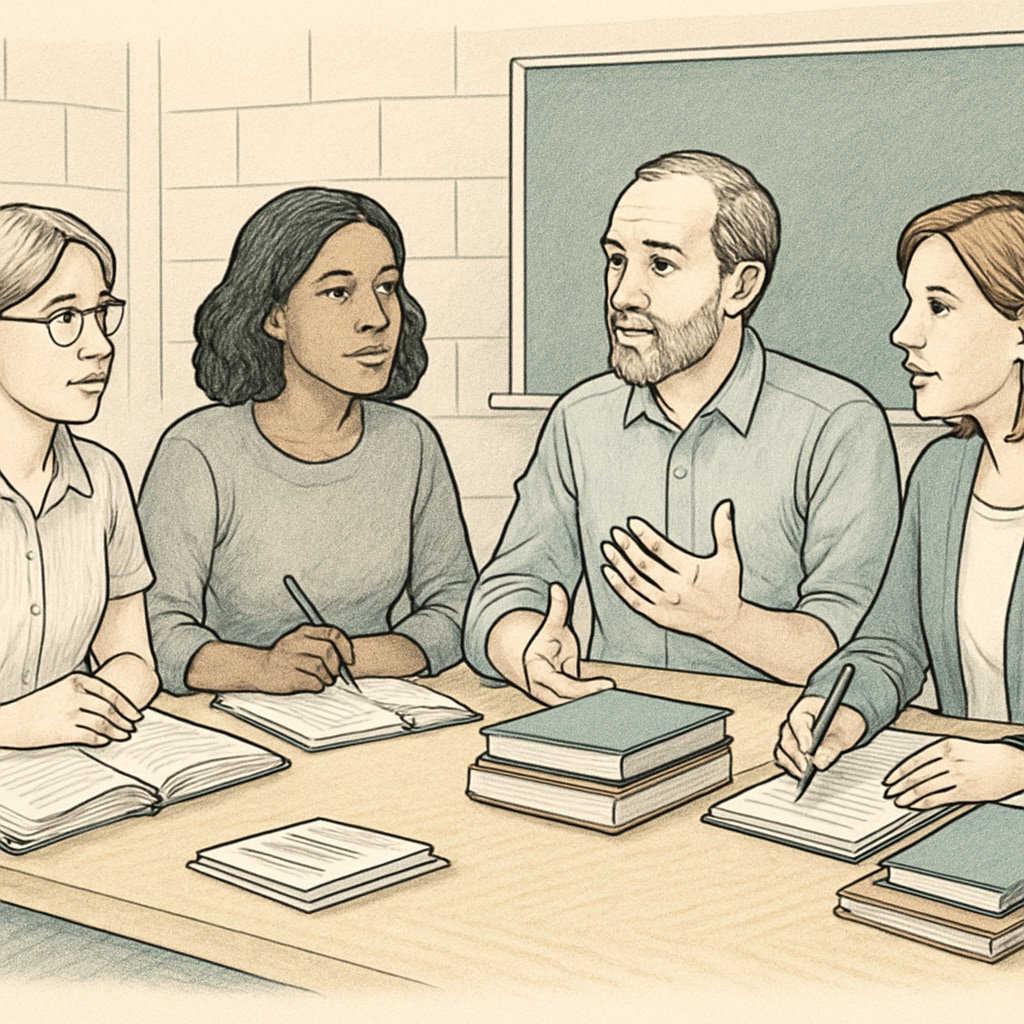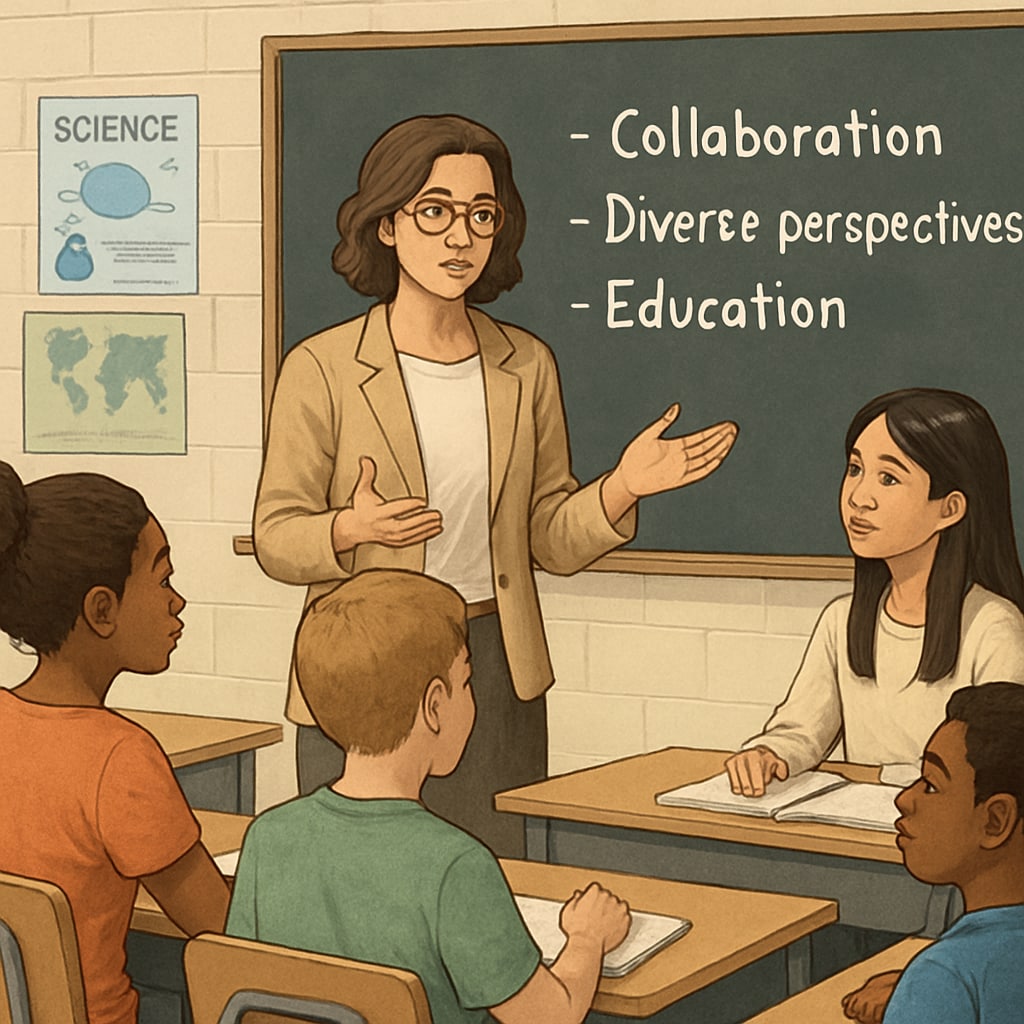In Oklahoma, a controversial new policy requiring out-of-state teacher applicants to undergo a political bias test has ignited debates about the intersection of education and political ideology. The measure, which reportedly aims to screen for “radical ideologies,” raises critical questions about the balance between maintaining educational integrity and ensuring ideological diversity in classrooms. This development touches on key issues, including teacher qualifications, the role of politics in education, and the potential risks of ideological gatekeeping.

Political Bias Tests: The Rationale Behind the Policy
Supporters of Oklahoma’s political bias test argue that it is a necessary step to safeguard students from what they perceive as the infiltration of radical ideologies into public education. Proponents claim that the policy will ensure teachers uphold the state’s values and protect students from potentially divisive or extremist viewpoints. According to state officials, the measure is particularly focused on filtering out candidates who might promote controversial perspectives on topics like race, gender, and history.
However, critics have pointed out several concerns. First, they argue that the policy risks alienating qualified educators who may hold differing viewpoints but are fully capable of teaching effectively and professionally. Second, the lack of transparency surrounding how “radical ideologies” are defined has led to fears of discrimination and political overreach. For example, the policy does not specify clear criteria for what constitutes an unacceptable political stance, leaving room for subjective interpretation.
Implications for Teacher Diversity and Educational Freedom
The introduction of political bias tests could have far-reaching consequences for teacher diversity and educational freedom. By prioritizing ideological alignment over professional qualifications, the policy may inadvertently narrow the pool of applicants, excluding talented educators who could bring valuable perspectives to the classroom.
For instance, a diverse teaching staff has been shown to positively impact student outcomes, particularly for students from minority or underrepresented backgrounds (Diversity in Education on Britannica). Limiting this diversity through political filters could hinder efforts to create inclusive learning environments. In addition, the policy risks creating an atmosphere where teachers feel pressured to avoid certain topics or self-censor, potentially stifling academic freedom and open dialogue.

Striking a Balance: Protecting Education from Political Interference
Balancing educational integrity with political neutrality is no easy task. On one hand, it is reasonable for states to expect educators to adhere to professional standards and avoid promoting personal ideologies in the classroom. On the other hand, placing political tests as a barrier to entry risks creating a slippery slope where education becomes a battleground for partisan agendas.
Experts suggest several alternatives to achieve this balance:
- Focus on professional standards: Instead of political tests, states could emphasize rigorous certification requirements that assess teaching competence and subject expertise.
- Encourage diverse perspectives: Schools should strive to include educators from various backgrounds and ideologies to foster critical thinking and open discussion among students.
- Transparent guidelines: If political or ethical standards are necessary, they must be clearly defined and applied consistently to avoid allegations of bias or discrimination.
As a result, states can ensure that their education systems remain both high-quality and inclusive, rather than becoming overly politicized.
Conclusion: The Future of Education in a Politicized Landscape
Oklahoma’s political bias test for teacher applicants has brought to light the ongoing tensions between education, politics, and ideological diversity. While the intent to safeguard students from harmful ideologies is understandable, the approach raises significant ethical and practical concerns. Moving forward, policymakers must carefully navigate this complex issue, ensuring that education remains a space for learning and growth, rather than a stage for political battles.
Ultimately, the success of any educational policy lies in its ability to balance competing interests—protecting students while respecting the diversity and professionalism of educators. As debates around political bias in education continue, Oklahoma’s policy serves as both a cautionary tale and an opportunity for broader reflection on the role of politics in shaping the future of learning.
Readability guidance: This article uses concise paragraphs and clear transitions to enhance readability. Lists are included to summarize key points, and academic terms are explained where necessary. Overuse of passive voice and long sentences has been avoided to maintain clarity.


